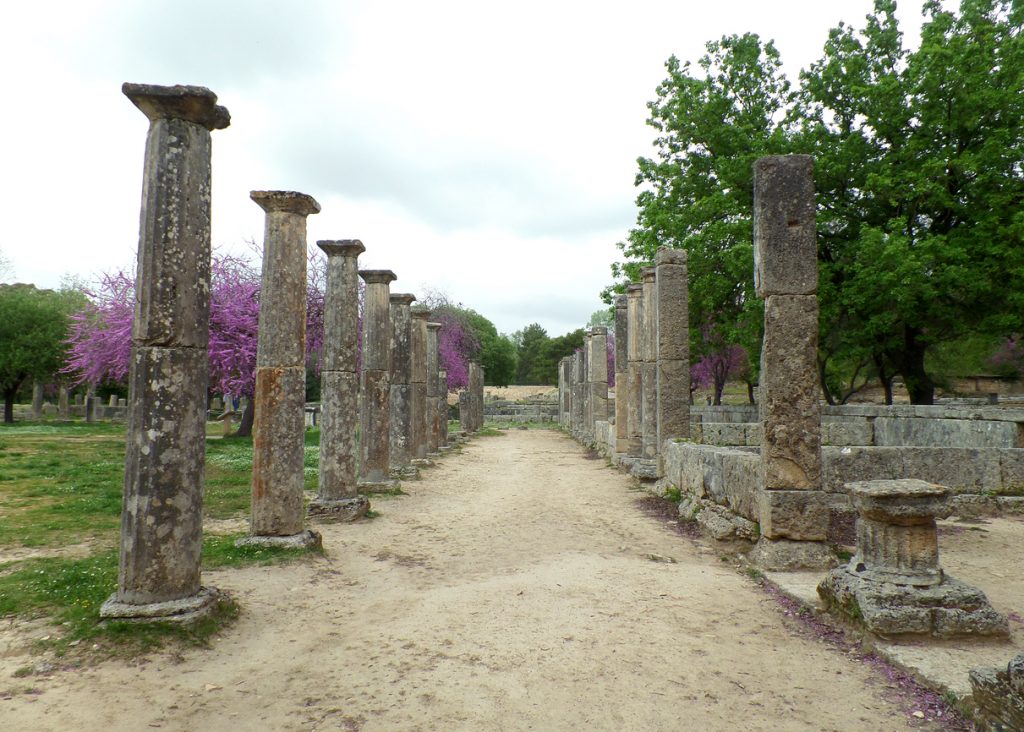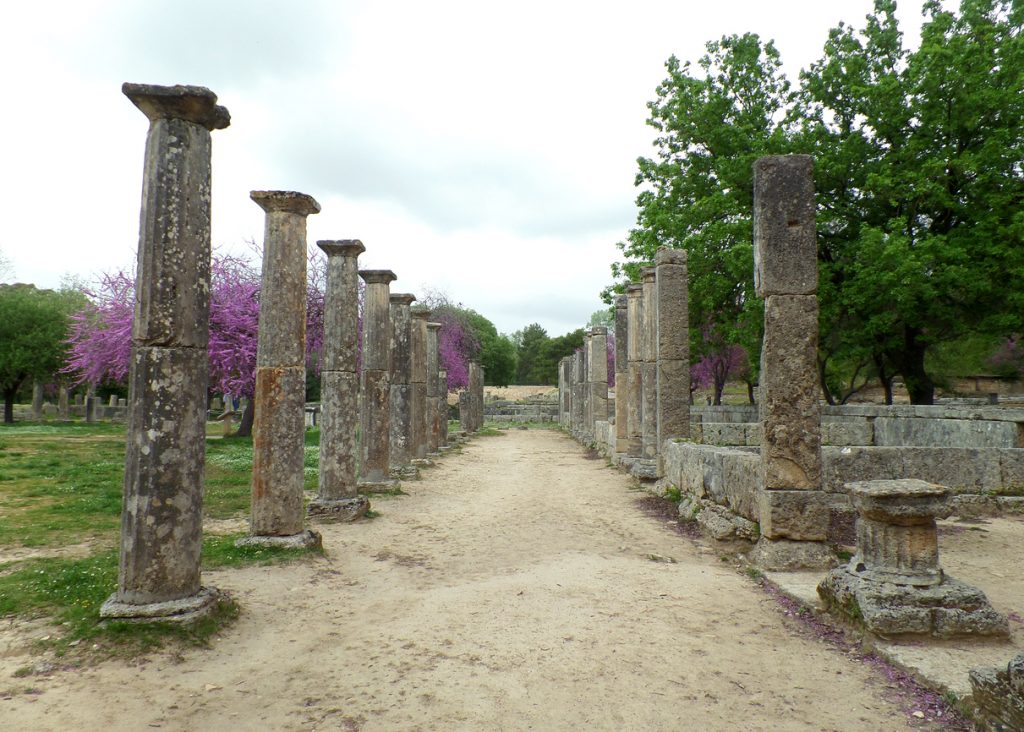Historical records date the first ancient Olympic games to 776 BCE. The games were originally held every four years in Olympia, in southwestern Greece, with competitors traveling from across the region’s various states. The very first Olympics lasted just one day and had a single event—a sprint race. (This article was first published in Who Kew?)
No Biting, No Poking
Over time, more events were added. Between 396 BCE and the first century CE, the games spanned five days, including an opening and closing ceremony, a mass slaughter of one hundred oxen, a funeral ceremony in honor of a mythological hero, and a day of prayer. There were lots of sports, but no team events: everyone competed as an individual. Events included three running distances on a wide track where 20 people could run side by side, wrestling, boxing, horse and chariot races, and the pentathlon—as well as a five-event competition comprising running, long jump, discus, javelin, and wrestling. One of the toughest sports was the pankration—a primitive martial art that combined wrestling and boxing. Biting and poking out people’s eyes were banned, but this largely rule-free sport could get ugly.
What Did They Win?
The ancient Olympic games were the inspiration for the modern Olympics, which began in 1896. Unlike today’s victors, who receive a bronze, silver, or gold medal, depending on their ranking, ancient Greek Olympians were all fighting to be the sole winner of each event—the Olympionike. Immediately after the event finished, the winner would be presented with a palm leaf by a judge. The crowd would applaud and throw flowers, and tie red skeins of wool around the hands and head of the victor. At the end of the whole contest an official prize ceremony took place in the Temple of Zeus. All the victors would be presented with a crown of olive branches, known as a kotinos.
Just as today’s athletes often receive victory parades and lucrative endorsement deals on their return from the Olympics, the same was true for Greek Olympionikes, who were welcomed home as heroes by their city-states. Songs would be written in their honor, and if an athlete had won three events, he could commission a leading sculptor to create a portrait statue to commemorate his success. Many athletes were sponsored by the state, which paid for such privileges, as their heroes’ sporting achievements brought great prestige to their hometown.










